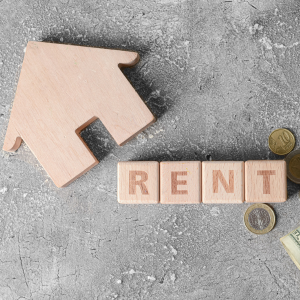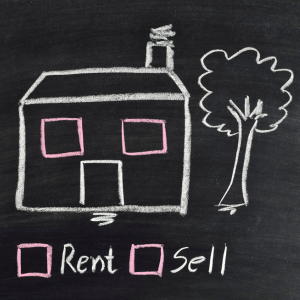
Sell House and Rent Back Option in Fairfax, VA: Rent-Back Tips for Home Sellers in Virginia
People in Fairfax, VA, who want to sell their home but stay in the same area may find the “sell house and rent back” option helpful. If someone makes this smart choice, they can sell their house and then rent it back from the new owner. They are stable because they can adjust their finances or lives when needed. People in Virginia can reach their personal and business goals if they understand how rent-back works. Even if they are just taking a break to get used to the market, this is always the case when people are moving.
Key Highlights
- Sell-and-rent-back offers flexibility and liquidity for Fairfax homeowners needing temporary housing after the sale.
- Rent-back agreements allow sellers to remain in their homes, facilitating financial and logistical transitions.
- Both buyers and sellers benefit financially and strategically from well-negotiated rent-back agreements in the state of Virginia.
- Key negotiating terms include rent duration, rental rates, and maintenance responsibilities, ensuring mutual satisfaction.
- Understanding risks, such as tenancy shift and financial obligations, prepares sellers for smoother transitions.
Understanding the Sell and Rent-Back Option in Fairfax, VA
For homeowners in Fairfax, Virginia, who want to sell their homes but still need a temporary place to stay, the sell-and-rent-back option is a smart choice. You can use this money-saving approach by selling your home and then renting it back from the new owner. This provides you with flexibility and immediate cash. Individuals who require a transitional period after settlement are most likely to utilize this service. If sellers choose this option, they can maximize the sale price of their home without needing to relocate immediately. Find out why a rent-back agreement can be so important to the sale of your house and how 4 Brothers Buy Houses can help you make the most of it.
What is a Rent-Back Agreement?

You can buy a house back from someone who already has it. It’s known as a rent-back deal. This choice is being made by an increasing number of people in Fairfax, Virginia, because it provides buyers with more time to sell their belongings or find a new home. Some of the most important aspects of the deal are who pays what and the amount of rent. After the sale, both sides can decide what to do next. Now that they don’t have to move right away, everyone can handle the change better.
It’s important how long it takes to pay the rent. Everyone can feel safe when they move, and everyone who buys a house can get the money while they stay put. The rent should be based on the value of the house and the local market conditions. Anyone who wants to buy or sell something wants this. They can help you create a fair plan and ensure you comply with Virginia’s property rules. If people do a rent-back deal correctly, they can use the value of their home to help them determine where to move next.
How Does a Rent-Back Agreement Work?
It’s possible to start the rent-back process once both parties agree to sell the house. During the talks, both sides agreed on the terms and conditions for repaying the rent. Most of the time, these terms are put into or added to the sales contract. When the deal is finalized, the seller moves in with the buyer and begins renting out the place to them. It’s essential to be open and honest about the terms of the change, ensuring that there are no disputes and everything proceeds smoothly. With this deal, the sellers can stay in their homes after the close. This gives them more time to figure out what they want to do next. This helps significantly in Virginia’s competitive real estate market, where it may take longer than planned to find a new home.
Rent-back deals are also good for your wallet. Most of the time, rent is based on the current market value of the house as a rental property. This protects the buyer’s right to a fair price and gives the seller financial freedom. Sellers typically assume homeowner tasks, such as repairs and bills, unless otherwise specified. It’s beneficial for everyone, making moving less stressful, and allows people to plan ahead for their next home when it’s set up correctly. To have a smooth home sale where everyone is happy, you need to understand these forces.
Benefits of Choosing a Rent-Back Agreement
Individuals looking to sell their homes can benefit significantly from rent-back deals in Virginia, particularly in Fairfax, where the housing market is continually evolving. With these deals, people who have sold their homes can continue to live in them after the sale. They won’t have to move right away, which gives them time to find a new place to live. When you want to sell something, they give you more choices. They can also be good for buyers and sellers, making the process easier for everyone. If sellers understand exactly what rent-back deals can do for them, they can make informed decisions that will help them achieve their financial and personal goals.
Why Home Sellers in Virginia Prefer Rent-Back Agreements
In Virginia’s competitive real estate market, a rent-back agreement offers sellers both financial security and logistical convenience. By completing the sale while remaining in the home as a tenant, homeowners can access their property’s value without the pressure of immediate relocation. This flexibility is especially useful in areas like Fairfax, where coordinating the sale of one home with the purchase of another can be challenging due to variable closing timelines. Rent-back periods can range from a few weeks to several months, giving sellers additional time to explore new housing options while maintaining stability during the transition.
Rent-back agreements also allow sellers to continue using the property much like their own, which is valuable for families with children or homeowners downsizing their belongings. The agreements clearly outline occupancy duration, rental costs, and maintenance responsibilities, protecting the interests of both parties. When combined with professional guidance, these arrangements ensure compliance with Virginia property laws and create a smooth, stress-reducing transition into a new home. This tailored approach positions sellers advantageously, allowing them to move at their own pace without compromising financial or personal priorities.
Advantages for Both Buyers and Sellers
Virginia rent-back deals are good for both buyers and sellers. This makes it easier for people to buy and sell real estate. This plan allows buyers to stay in their current location while maximizing their financial gain. It’s a middle ground between selling and moving. If sellers make the rent-back time flexible, buyers who are willing to be flexible with their needs will be more likely to make an offer. This is especially helpful in Fairfax markets where inventory is low. This gives buyers more time to consider their next move without feeling rushed, which reduces their stress.
People who want to buy something may find rent-back deals more appealing and more financially smart from a business perspective. People who buy properties can generate short-term rental income that covers their costs and saves them the trouble of finding temporary renters. They also have more time to make plans for moving in, fixes, and other preparations because the sale doesn’t have to be rushed, so they can leave right away. The deal saves money and simplifies things for both parties. This makes the exchange go more smoothly, and everyone knows what to expect. This approach to collaboration is becoming increasingly common in Virginia because it enables people to find effective solutions and makes everyone happier.
Tips for Negotiating a Rent-Back in Fairfax, VA

Rent-backs are an option for people in Fairfax, Virginia, who want to sell their homes, as they offer more than just the choice to sell and move. If done correctly, rental-to-own deals can help people maximize the benefits of their homes and provide renters with a place to live immediately. There will be less trouble with this deal if you are familiar with the main points and the standard terms. Learn how to get the most out of rent-back deals and make sure they fit your business and personal needs.
Key Considerations for Home Sellers
In Fairfax, sellers who want to secure favorable terms in Virginia’s competitive housing market need to plan carefully before signing a rent-back agreement. The first step is to choose a rent-back period that gives you enough time to move in and find a new place to live. Additionally, sellers should discuss a fair monthly rent that aligns with current market rates. This way, everyone will be happy, and the sellers won’t have to worry about their finances too much. During negotiations, it’s essential to be clear about what is expected in terms of property maintenance, the changes that are permitted, and responsibilities such as paying utilities or maintaining the yard. Setting these terms upfront helps avoid confusion and ensures the rent-back process proceeds smoothly.
Concerns about money and the law are also very important to the agreement. To avoid coverage gaps and prepare for potential liabilities during their extended stay, sellers should ensure that their homeowner’s insurance is in sync with the buyer’s policy. Virginia property rules must be followed by ensuring that the terms align with market conditions in Fairfax and seeking professional advice. A well-thought-out rent-back agreement can provide sellers with freedom, security, and peace of mind as they transition to their next place, provided they are well-prepared and seek professional help.
Common Terms in Rent-Back Agreements
Some important things you need to know about rent-to-own deals in Fairfax if you want to get the best deal. The term “rent-back” is often put into these agreements. This is the duration the seller can remain in the house after the deal is finalized. It typically takes between a few weeks and a few months. It’s also important to pay the rent on time. It should depend on the house’s value and the current state of the area. Some buyers think that the rent should cover their loan. Some people can have a flat rate that gives buyers extra money, leaving everyone else’s finances unaffected. Maintenance, small repairs, lawn care, and electricity are all things that each person is responsible for. This is made clear so that things run smoothly and avoid conflicts in the future.
When you return a rented item, the rules regarding damage and protection are also very important. It’s essential for both the buyer and the seller to review their insurance policies to ensure they cover sufficient risks or damages to the property during the rental period. Additionally, buyers must ensure their own belongings are secure. They will get along well as long as there are clear rules about when the rent-back will end and how to settle disagreements. There are property rules in Virginia that stipulate that everything must be legal. It is best to seek assistance from a licensed real estate agent or attorney in Virginia. Rent-to-own is now a safe and beneficial option for everyone.
Potential Risks and Challenges
There are many benefits to rent-back deals; however, buyers in Virginia, particularly those in Fairfax and Arlington, should be aware of the potential drawbacks. Some bad things about the rent-back deal you need to know about are the risks of renting after the settlement and how it will affect your funds during the rent-back period. It can also get tricky to agree on who is responsible for repairs and care on a property, so sellers should be aware of this. If buyers are aware of these potential issues, they can better prepare for them and negotiate more favorable terms that meet their personal and financial needs.
Understanding the Drawbacks of Rent-Back Agreements
A rent-back deal may not always be suitable for individuals in Virginia who wish to sell their home. When you rent out a home that you used to own, you might feel like you’ve lost control of a place you know well. If the buyer dislikes it, the seller may not be able to make changes or improvements. That’s why it’s so important to use clear language. People who buy homes need to have extra cash on hand for when the rent is paid back. Like, they might have to pay rent that’s different from what they paid for their house. While renting at the market rate is fine, be aware that it may cause stress if you can’t find a new home quickly. You should also be aware of the duration you must agree to stay in order to pay back the rent. You may need to postpone planning your next living arrangement and do more work than necessary if you agree to stay for an extended period. Discover how we can help you.
You also have to deal with fixes and making changes to your insurance. You and the renter must both ensure that their insurance covers enough to protect them against risks to their property or liability during the rent-back period. Make it clear who is responsible for fixes and upkeep so there are no misunderstandings and everyone is happy. However, rent-back plans can still be effective if they are well-planned and comply with the law. Get professional help and be honest about the terms. This will lower the seller’s risks and ensure the process proceeds smoothly and efficiently. So, they won’t have to worry about stress after the sale.
Conclusion: Making Rent-Back Work for Your House Sale in Fairfax, VA

If you want to sell your home for cash in Virginia, a rent-back deal may be a helpful option. This is an option for people who buy a home in Fairfax, Virginia, so they don’t have to move right away. When things are moving quickly, it can be challenging to remember when to buy and sell. A rent-back deal can provide you with a room and peace of mind. As long as the rent-back deal is clear, they can take as much time as they need to find a new place to live. They can still live in a place they know well with the money from the sale.
For the deal to go through, both groups must be able to talk about the details and agree on them. The rent should be based on the market value of the house. To save cash, the rent may even be the same as the mortgage payment. It’s easier to stay calm and on track when everyone knows who is responsible for tasks such as repairs, bills, and insurance. In Virginia, rent-back plans are most effective when established by a licensed real estate agent and adhere to the established guidelines. They feel safe in their present home while they decide what to do next. It makes a change that might be hard for them, but it’s an easy and helpful part of their home-buying journey.
Selling your home? Skip the delays, skip the repairs, and skip the headaches. 4 Brothers Buy Houses makes it easy with fast, fair cash offers and a smooth process from start to finish. Call us today at 202-601-4928 for a no-obligation quote and discover how easy it can be to sell your house fast for cash in Fairfax, VA, and in nearby areas.
FAQs:
What is a sell-house and rent-back option in Fairfax, VA?
The sell-house and rent-back option allows homeowners to sell their property and then lease it back from the new owner. This provides a seamless transition for sellers who wish to unlock property equity while remaining in familiar surroundings.
How does a rent-back agreement benefit sellers and buyers?
Rent-back agreements offer sellers flexibility and liquidity, enabling them to continue living in their homes after the sale. Buyers benefit from potential rental income and the opportunity to negotiate favorable purchase terms by accommodating the seller’s needs.
What terms are typically included in a rent-back agreement?
Key terms of a rent-back agreement include the duration of the rent-back period, rental rates, and responsibilities for maintenance and utility payments. These specifics ensure the satisfaction of both parties and a clear understanding of their respective roles.
Are there any risks associated with rent-back agreements?
Yes, potential risks include the transition from owner to tenant, financial obligations such as rent payments, and responsibilities for property maintenance. Sellers should be aware of these challenges and prepare terms that align with their financial goals.
How can sellers ensure a smooth transition with a rent-back agreement?
Sellers should define clear, well-negotiated terms covering the rent-back period, rent rates, and responsibilities. Consulting professionals for legal compliance ensures a well-structured agreement that benefits all involved.
Helpful Fairfax Blog Articles
- Documents For Selling Your Home In Fairfax, VA
- Selling Your Fairfax, VA Home With Foundation Problems
- Selling A House With Code Violations In Fairfax, VA
- Closing Costs When Selling A Home Without An Agent In Fairfax, VA
- How To Sell A House With Title Issues In Fairfax, VA
- Selling A House With Termite Damage In Fairfax, VA
- Tax Implications of Selling Home In Fairfax, VA
- Can You Sell House With Tenants in Fairfax, VA
- Refinance a House After Divorce in Fairfax, VA
- Cost of Asbestos Removal in Fairfax, VA
- Selling a House with a Mortgage Work in Fairfax, VA
- Understanding Executor Rights in Fairfax, VA
- How to Sell a House in Bankruptcy in Fairfax, VA
- Selling a House After 3 Years in Fairfax, VA
- Selling Shares of Your Home in Fairfax, VA
- Sell House and Rent Back Option in Fairfax, VA

